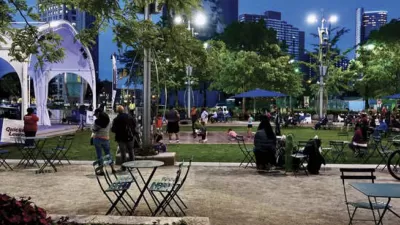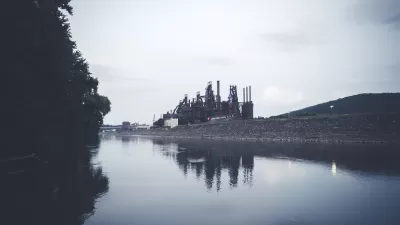The world collectively spent on $17 trillion economic stimulus during the pandemic. The vast majority of that spending will make climate change and other environmental pollution much worse.

"Trillions of dollars poured into rescuing economies around the world from the Covid-19 crisis have been spent in ways that worsen the climate crisis and harm nature because governments have failed to fulfil promises of a 'green recovery' from the pandemic," reports Fiona Harvey, sharing the findings of an analysis published last week by Vivid Economics and the Finance for Biodiversity Initiative.
World governments collectively spent $17 trillion on economic stimulus and recovery programs since the beginning of the pandemic. The "Green Stimulus Index" estimates that only a tenth of that spending went to activities that can reduce greenhouse gas emissions or restore the natural world.
"Of the total spending, most went on emergency measures, such as wage payments, to keep economies afloat. But about $4.8tn of the spending, including outlays on road construction, bailouts for airlines, and boosts to food production, had a clear environmental impact," explains Harvey.
The article includes more details of the report's findings, and also includes an infographic that breaks down the environmental breakdown of stimulus spending by country. The country with the "greenest stimulus," according to the report, is Denmark. The United States decidedly in the red, for spending more on negative environmental outcomes, but is far ahead on the index of countries like Russia, Turkey, and Singapore.
FULL STORY: Trillions of dollars spent on Covid recovery in ways that harm environment

Maui's Vacation Rental Debate Turns Ugly
Verbal attacks, misinformation campaigns and fistfights plague a high-stakes debate to convert thousands of vacation rentals into long-term housing.

Planetizen Federal Action Tracker
A weekly monitor of how Trump’s orders and actions are impacting planners and planning in America.

Chicago’s Ghost Rails
Just beneath the surface of the modern city lie the remnants of its expansive early 20th-century streetcar system.

Bend, Oregon Zoning Reforms Prioritize Small-Scale Housing
The city altered its zoning code to allow multi-family housing and eliminated parking mandates citywide.

Amtrak Cutting Jobs, Funding to High-Speed Rail
The agency plans to cut 10 percent of its workforce and has confirmed it will not fund new high-speed rail projects.

LA Denies Basic Services to Unhoused Residents
The city has repeatedly failed to respond to requests for trash pickup at encampment sites, and eliminated a program that provided mobile showers and toilets.
Urban Design for Planners 1: Software Tools
This six-course series explores essential urban design concepts using open source software and equips planners with the tools they need to participate fully in the urban design process.
Planning for Universal Design
Learn the tools for implementing Universal Design in planning regulations.
planning NEXT
Appalachian Highlands Housing Partners
Mpact (founded as Rail~Volution)
City of Camden Redevelopment Agency
City of Astoria
City of Portland
City of Laramie





























